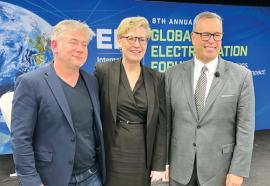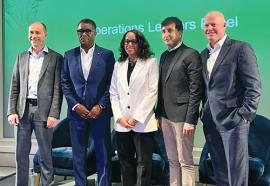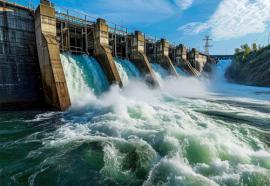EEI 8th Annual Global Electrification Forum
Picture Energy
The 8th Annual Global Electrification Forum, hosted by the Edison Electric Institute with the theme of Infinite Innovations, Transformative Impact, was held with a virtual program and three days of in-person talks in Washington, D.C. The Forum explored advancing electrification through impactful actions that promote systemic innovation across the ecosystem surrounding electricity.









